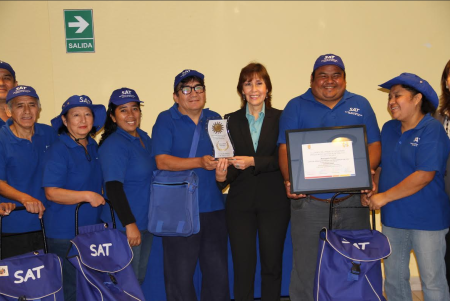Andrew Nickson is Honorary Reader in
Public Management and Latin American Studies in IDD, with 30 years’ experience of teaching, research and consultancy on public administration reform, local governance, decentralization and urban water supply. He has particular interests in Sierra Leone, Nepal and Paraguay, countries where he has had long-term work assignments.
Last week I was in Panama City to deliver the inaugural address at the 2nd Latin American seminar on good practices in municipal management. My topic was the challenges of sub-national governance in the region, after thirty years during which local political democracy has gradually become the norm, accompanied by a growing share of fiscal revenue devolved to local government. However, as I pointed out in my address, progress in creating a genuine career system at the municipal level has proceeded at a snail’s pace, mainly due to the opposition of local and national political leaders, for whom the gift of political appointments remains a key tool in winning votes at election time.
I was also a member of a panel to select prize-winners for the ‘best practices’ carried out by local governments. Three things stood out. First, many of the 35 entries from around the region were rather mundane activities (e.g. modernising a municipal records office or a setting up a farmer’s market) that would be considered nothing special in the municipalities of northern Europe. Second, little Uruguay (pop. 3.5 million), won many of the prizes, as it did last time round. There is a simple reason for this. Uruguay has the most educated population, least unequal income distribution, and oldest demographic profile in the region. This combination, leavened with a radical cultural tradition passed on by forefathers from Italy and Spain, has produced one of the highest incidences of ‘active citizenship’ in the world. Finally, and related to this, some of the entries (especially the winners) were extremely innovative in the way that citizens interacted with local government.

Metropolitan Tax Authority (SAT) of Lima, Peru
Take for example the entry by the Metropolitan Tax Authority (SAT) of Lima, Peru, which won 2nd prize. In order to deliver council tax bills to householders in dangerous parts of the El Cercado inner city neighbourhood, SAT recruited unemployed, very low-income and older residents of El Cercado, giving special preference to single mothers. After training, these local staff proved to have a much higher success rate on bill delivery than the private firm to which the service had been previously contracted out. Their self-esteem and income rose, they become valued colleagues on the municipal staff, and this ‘social capital’ approach encouraged a higher rate of tax compliance by residents.
So how can there be so much creativity and innovation in local governance when municipal authorities often lack the solid career structures that I was lamenting in my address? Well maybe it is not such a contradiction after all. When an elected mayor has such freedom over appointments, this can be used for good or ill. Some just pack departments with friends and family, often as ghost-workers, and milk the system while in office. But many others, such as those represented at the Panama event, use that freedom to bring on board a team of dynamic, younger professionals, from academia, NGOs and the private sector, in order to spearhead radical change. What is exciting about this is the way that they actually put into practice the concept of ‘local democratic governance’, developed by UNDP, with a genuine passion. These mayors and their advisors get involved in day-to-day initiatives, work out-of-hours, are on first-name terms with junior staff, and are prepared to delegate real power to citizens. One way of getting this moving is through participatory budgets, whereby citizens actually decide municipal investment priorities in their neighbourhoods. These have become commonplace throughout the region.
The end result is that this variant of Latin America’s local government culture gets things done more much more rapidly and in a much more inclusive manner than the cold managerialist culture of English local government, with its silo mentality, nine-to-five approach, and where ‘community involvement’ is purely a tick-box devise used to extract funds from central government or the EU. So aren’t I contradicting myself? On the one hand lamenting the absence of a genuine local career system yet at the same time admiring the ‘passion’ of the personalist mayoral system of Latin America. This is a tricky issue to resolve. Indeed the ‘informality’ of the system does mean that many brilliant initiatives come to a grinding halt when a new mayor is elected, often seeking to distance him/herself from his/her predecessor by simply killing projects, even when they were successful. So this lack of an ‘institutional memory’ does make it more difficult for reforms to bed down. But as shown by the SAT project, which has already survived three periods of office of different mayors, this is not impossible.
